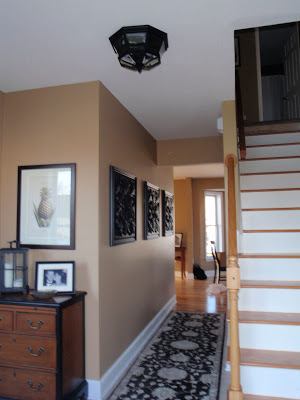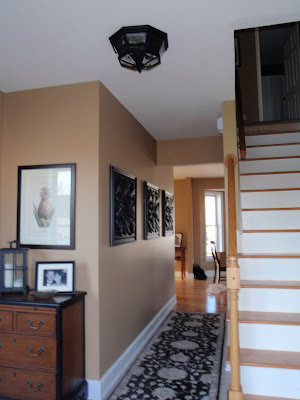
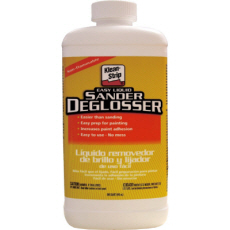
2. Killz Primer
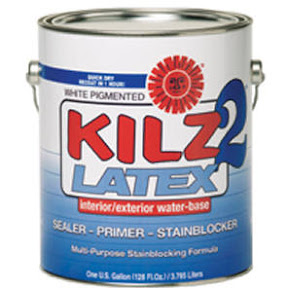
3. Foam Rollers

I started by applying the Liquid Sander and Deglosser to the bannister with an old t-shirt. It’s really runny and you need to apply a nice thick coat of it (rubbing in circles). If your stairs are already refinished, be careful as this stuff will take the gloss off of your stairs too (yes, this happened to us).
The deglosser takes about 10 minutes to dry and it’s awesome. No sanding, no mess. My fingertips were thanking me already.
Next I applied two coats of Killz Primer to the bannister. Why two coats? because I did one coat and the nooks and crannies weren’t quite filled in and I wanted the bannister to look black and not like painted wood. I applied the primer with a paintbrush and that actually went okay. If I had a foam roller though, I would have used it for this too. I was just too lazy to drive to Home Depot.
Once the primer dried, I painted the railing with black indoor latex paint. Nothing special, just leftover paint we had from when I painted our front door black. Now here was my first mistake. I used a paint brush to apply both coats of black paint. I figured the primer came out so good, maybe I didn’t need a foam roller.
My second mistake was using wipe-on poly to seal the bannister.
Jenny always raves about the wonders of wipe-on poly and we had some in the house already from another project, so I thought, why not? I’ll tell you why not. It doesn’t create a thick enough coat over the surface. So in between poly coat #1 and poly coat #2 you are supposed to lightly sand the surface. We did using the a 400 grit sandpaper and this is what happened.
See the white? That’s not sandpaper dust, it’s the primer peeping through. Yuk.
Not the worst problem, because the paint really needed to be redone since the brush had left marks. Lesson learned. I reapplied the deglosser and while it set I drove to Home Depot and bought foam rollers and little foam brushes. By the time I got back the bannister was ready to be painted…for the second time.
This time I let the paint dry overnight (since we had applied so many coats of so many things in a day. The foam rollers did a great job.
Lucky for me I had a can of Minwax Satin Poly leftover from when I redid the stairs. I decided to try that out (it needs to be applied with a brush or a foam roller as opposed to the wipe on stuff).
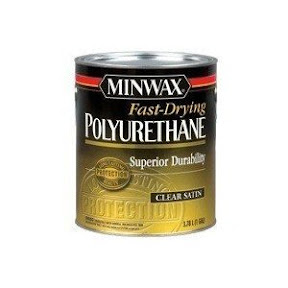
We had absolutely no problems with sanding between coats this time. (Yes, I said we. By the time I was at this step I was at my wits end and had recruited the husband’s help). We applied the second coat, let it dry overnight and voila! The stairs were finally done.
Had we, and by we I mean me, not cut corners (hello? paintbrush!) and not used wipe-on poly, this project would have taken a weekend. Because I had to redo the last two steps, it actually took us two weekends. Boo. But I love the way it turned out.
Before:
After:

